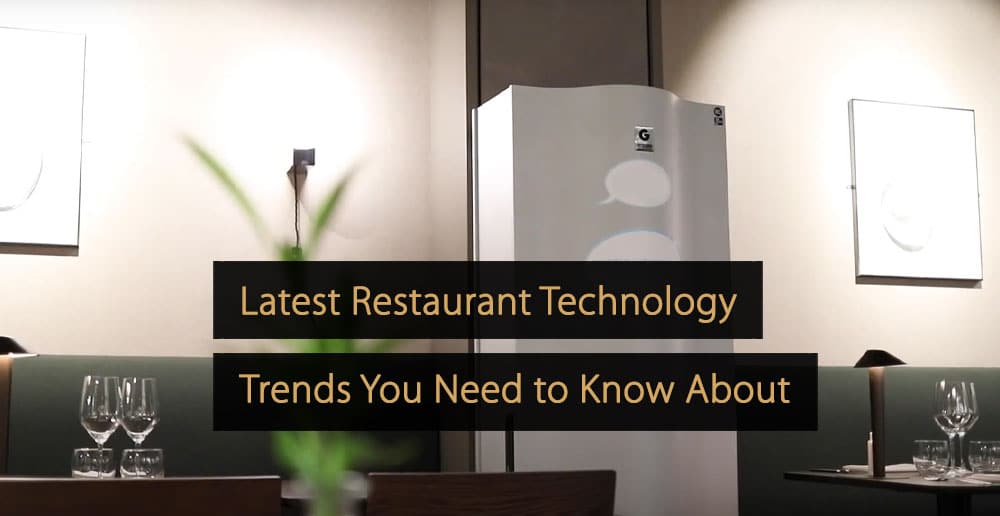The increased use of voice search in the hospitality industry has been one of the major technology trends in recent times. Yet, reliable voice search is still relatively new, and many hotels and restaurants have started recognizing its potential. In this article, you will learn more about voice search and how hospitality companies can benefit from it.
Table of Contents:
- What is Voice Search?
- Difference Between Voice Search and Text Search
- Voice Search vs. Virtual Assistants
- Why is Voice Search Becoming More Important Within the Hospitality Industry?
- How Does Voice Search Work?
- What Are the Advantages of Hospitality Companies Adopting Voice Search?
- 4 Tips for The Hospitality Industry to Optimize a Voice Search Strategy
- Examples of Voice Search Within the Hospitality Industry
- Voice Search and Other Technology Trends in Hospitality
- Voice Search and the Other Key Hospitality Marketing Trends
What is Voice Search?
Voice search is a technology that combines core search engine functions with voice recognition capabilities. Typically, a user provides a spoken voice command, and the voice recognition technology allows this command to be understood. From there, the search is carried out in the same way if the command had been typed.
The search string that is input using speech is usually created through a process known as automatic speech recognition, or ASR. The search results may be shown on a screen or presented as audio. When the latter occurs, this is usually achieved via text-to-speech technology, which essentially reads text out loud.
Voice search within hospitality tends to center around tourist information-type questions and voice-activated bookings. This means users can find important information about attractions, venues, local businesses or locations, or book hotel rooms or restaurants, all with the use of their voice.
Difference Between Voice Search and Text Search
Aside from how it is activated, there are some fundamental differences between voice search and classic text search. In general, voice search tends to be significantly faster because most people can provide voice commands more quickly than they can type in a search string and press ‘Enter‘ on a keyboard.
People also tend to use voice search and text search slightly differently; those in both the hotel and restaurant industries need to keep this in mind. To provide one example, a voice search will often be phrased as a question, whereas a text search may consist of a few keywords that indicate the topic the user is interested in.
Voice Search vs. Virtual Assistants
In many cases, voice searches are carried out using virtual assistants, with some of the most popular being Google Assistant, which was created by Google; Siri, which Apple created; Alexa, which is the voice assistant for Amazon; and Cortana, which is a Microsoft technology that makes use of the Bing search engine instead of Google.
Voice search is a major feature associated with these virtual assistants. However, it is important to state that voice search can exist independently. Voice search within hospitality settings generally uses virtual assistants, but not exclusively so. Essentially, any technology using voice commands to carry out online searches can be described as voice search technology, whereas virtual assistants usually offer extra features.
Why is Voice Search Becoming More Important Within the Hospitality Industry?
There are several different factors that have combined to make voice search one of the most important hospitality trends to be aware of. The first of these is the amount of investment that has been put into the technology, with companies like Google, Apple, Amazon, and Microsoft all developing their own voice-controlled virtual assistants.
However, beyond this, voice search is in-keeping with other customer trends, largely intended to remove friction and speed up processes. For the average person, asking a question via voice command will be quicker and easier than launching a web browser, going to Google or Bing, and entering their search query. Voice searches can also be carried out even if the user is busy doing other things.
As much as voice search has emerged as an important technology today, it is also fair to say that it is an investment for the future. Research suggests that voice search has already taken off in a big way, but this will only expand further, especially as more people realize the technology’s benefits.
In fact, according to statistics published by Review 42, 31 percent of smartphone users now use voice search at least once a week. More than a billion voice searches are made every month and 61 percent of people aged between 25 and 64 say they expect to use voice search even more in the future than they do now.
How Does Voice Search Work?
Regarding how voice search works, it uses modern speech recognition technology, hugely reliant on machine learning. The technology can recognize not only when a user is speaking to it, but also what they are saying. In many cases, it can even detect multiple different languages.
From there, voice search technology converts this speech into a web search, which is then done using the search engine. Today, the majority of voice searches are carried out using Google. After the search itself has been conducted, the user will be presented with results or a single answer to a question.
What Are the Advantages of Hospitality Companies Adopting Voice Search?
Some of the main advantages of adopting voice search within hospitality are outlined below:
1. Improve the Customer Experience
Voice search in hospitality has been one of the major ways hotels and restaurants have delivered an improved customer experience. Whether booking the room or meal in the first place or using smart speakers within hotel rooms to provide greater control and personalization for guests, voice search can go a long way towards delivering greater efficiency and improving the overall customer experience you provide.
2. Boost Website Traffic
A significant benefit of voice search is the potential to attract more website traffic. After all, if a certain percentage of users regularly use voice search instead of text search, it is important to try to capture this demographic. The companies in the hospitality industry that make the most of voice searches tend to be those who optimize content because voice searches are often framed as questions.
3. Stay Ahead of Main Competitors
Finally, another major advantage for those involved in hospitality management is the opportunity voice search provides to get ahead of your competitors. Whether you are in the restaurant industry, the hotel industry, or other parts of hospitality, such as bars and cafes, providing voice search support in as many areas as possible can be a good way to differentiate your business from your main rivals and offer something they are not offering.
4 Tips for The Hospitality Industry to Optimize a Voice Search Strategy
Below, you will find four tips to help you implement and optimize a voice search strategy for hospitality.
1. Place a Strong Focus on Local Search
One of the most important tips for hotel, restaurant, and bar owners is to focus online content on your local audience. As the aforementioned statistics published by Review 42 show, 58 percent of people have now used voice search to find out about a local business. Use location-specific words within the content, and think about what users may search for. This could be things like “Italian restaurant near me” or “Find me a hotel in Barcelona that is near a beach“.
2. Adapt Keywords to Focus on Speech
Next, you need to think about your keywords slightly differently. People are unlikely to use voice search to carry out a search for one or two words. Instead, they are likely to ask questions, allowing you to focus on longer keyword strings. If you focus some of your keyword research on what people are likely to say out loud, you may see significant SEO benefits and have your results chosen by virtual assistants.
3. Think About Your Specific Audience
As with any search marketing strategy, optimizing voice search for a hospitality business requires you to be specific about the audience you are trying to reach. After all, it is no good creating content that will be accessed by people who are looking for something else. Consider your target market carefully, the questions they might ask a virtual assistant and how they might phrase those questions, then optimize your website accordingly.
4. Optimize for Search Engines Too
Of course, while your primary audience will be potential customers, you should also optimize your website and any content published with search engines in mind. There are several things you can do here, ranging from using Schema markup code to simplifying the layout of your content. Regarding voice search and the focus on questions, bullet point content or content broken down into sections tends to rank highly.
Examples of Voice Search Within the Hospitality Industry
Here, you can find specific examples of how voice search is used in hospitality.
1. Finding a Hotel with Voice Search
The video below shows how a user might use voice search to find a hotel. As you will see, voice searches can be quite specific. The user is then presented with a list of hotels that match the parameters.
Video: Hotel Search on Smartphone with Voice
2. Finding a Restaurant with Voice Search
In this video, you will see a similar process where a user searches for a restaurant. The user is carrying out a voice search using a digital assistant, and after the initial search, additional commands are given to narrow the options down.
Video: DEMO: See the Hound Voice Search and Assistant App in Action
Voice Search and Other Technology Trends in Hospitality
The growing use of voice search is an important hospitality industry tech trend. Still, there are several other trends you need to be aware of, too, with key examples including robotics, contactless payments, AI-powered chatbots, the Internet of Things (IoT), and both augmented and virtual reality.
Read “The Latest Technology Trends in the Hospitality Industry“ for more information on these trends. Keeping up with the latest trends is crucial for staying competitive and providing a good customer experience.
Voice Search and the Other Key Hospitality Marketing Trends
One of the biggest reasons hospitality companies prioritize voice search is that it can deliver strong marketing benefits. However, a rounded marketing strategy will also consider some other major trends, like customer experience, personalization, and influencer marketing.
Check out “Hospitality Marketing Trends: Discover The Latest General & COVID Related Trends“ to learn more, including details on how the COVID-19 pandemic has impacted hospitality marketing efforts.
Voice search is taking the hospitality industry by storm, allowing customers to find important information and make bookings using speech. For those operating in the industry, it is vital that sufficient time is spent on optimizing website content for voice search to capitalize on this shift in customer behavior.
More Tips to Grow Your Business
Revfine.com is the leading knowledge platform for the hospitality and travel industry. Professionals use our insights, strategies, and actionable tips to get inspired, optimize revenue, innovate processes, and improve customer experience.Explore expert advice on management, marketing, revenue management, operations, software, and technology in our dedicated Hotel, Hospitality, and Travel & Tourism categories.
This article is written by:
Hi, I am Martijn Barten, founder of Revfine.com. With 20 years of experience in the hospitality industry, I specialize in optimizing revenue by combining revenue management with marketing strategies. I have successfully developed, implemented, and managed revenue management and marketing strategies for individual properties and multi-property portfolios.









Leave A Comment